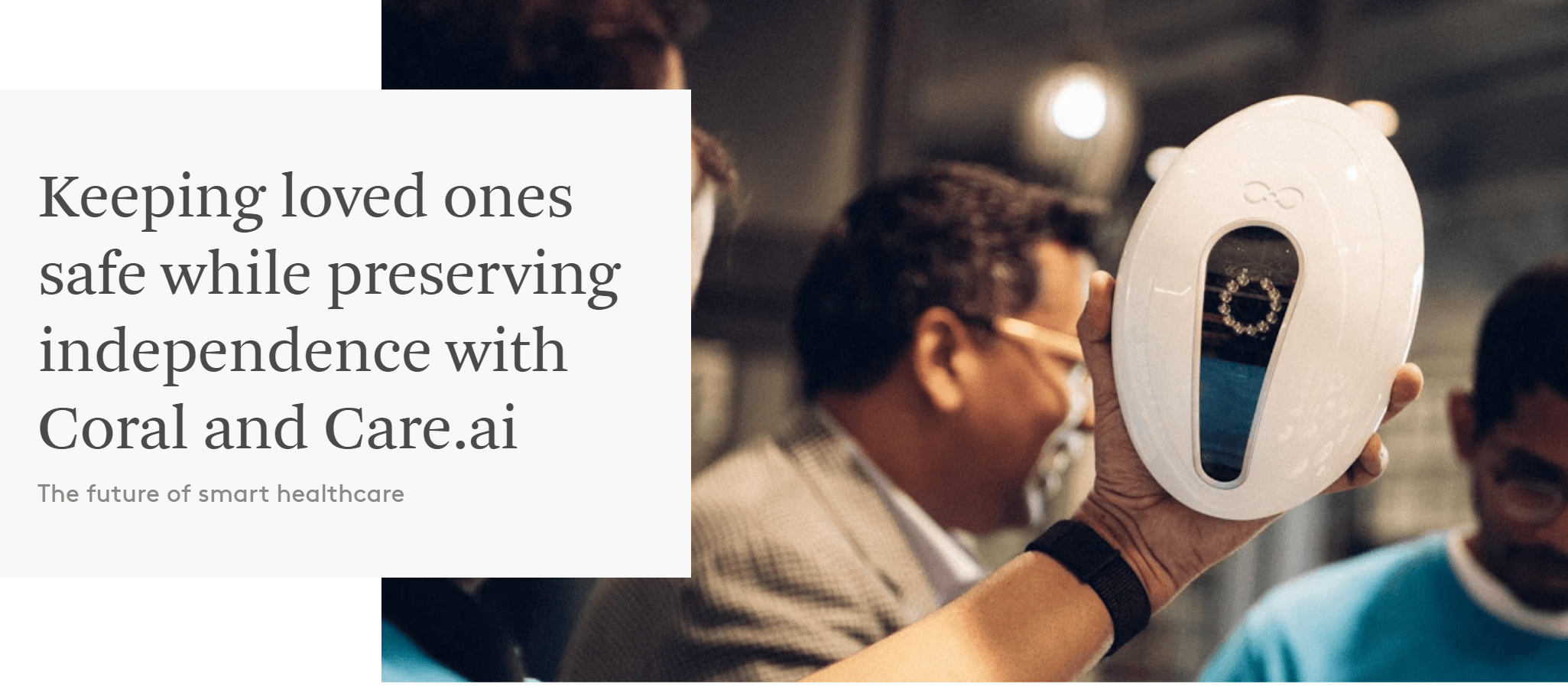
– Google collaborates with a new company, care.ai to bring autonomous monitoring capabilities of self-driving cars to hospitals, nursing homes and other healthcare facilities to prevent patient falls, bedsores, protocol violations, etc.
– care.ai uses Google’s Coral TPU to turn every room in a facility to a “Self Aware Room,” its active learning neural networks and edge sensors can predict and prevent potentially fatal mishaps for patients in a clinical setting.
care.ai, a healthcare AI innovator, today announces a partnership with Google, to use Google’s Coral Edge TPU to power autonomous monitoring in hospitals. This collaboration enables care.ai’s platform to leverage accelerated neural networks at the edge, to transform an ordinary room into a “Self Aware Room,” in any care setting at an enterprise scale.
Establishing A New Standard of Care
The global population is aging. In the United States, for example, people over the age of 65 will outnumber children, for the first time in the country’s history, by 2035. With an aging population comes a growing need for care—at home, in hospitals, and in nursing facilities. Hundreds of thousands of patients die each year, as a result of avoidable falls, pressure ulcers, infectious disease, and many more preventable medical errors. care.ai’s breakthrough invention will create a transformative impact across clinical and operational processes to establish a new standard of care.
Using multiple modalities, care.ai sends context-aware, intelligent notifications to staff to alert and inform them about what is happening in any room at any time. This new power of knowledge transforms archaic, reactive tasks into intelligent, proactive workflows.
Deep Neural Networks
The platform’s neural network algorithms are built using the world’s most extensive library of human behavioral data, proprietary to care.ai. Our deep neural networks can actively learn and evolve on a more advanced level than any other healthcare solution. In addition, care.ai’s machine learning capabilities include first-of-its-kind enterprise staff monitoring algorithms to naturally identify strengths and expose weaknesses in workflows; to learn gaps and automatically improve accuracy, efficacy, and efficiency.
The Impact of Bringing AI-Powered Autonomous Monitoring to Healthcare Environments
“Imagine if we brought the power of AI with autonomous monitoring to healthcare environments – we could prevent injuries, diseases, protocol breaches, and ultimately fatalities; while improving staff efficiency,” said Chakri Toleti, Founder and CEO of care.ai. “By utilizing Google’s Edge TPU, care.ai has done just that – we have built an AI sensor to monitor, predict, and infer behaviors using billions of data points in real-time. It is truly the world’s most advanced AI platform for healthcare.”
The ease of implementing care.ai’s patent-pending platform in all care settings will let organizations seamlessly adapt and integrate AI into their environments. Our advanced deep neural networks run at the edge, maximizing the predictive power to nanoseconds, bringing substantial improvements to operational readiness and clinical quality.
“We believe we are on the cusp of an amazing revolution for AI in healthcare and are proud to partner with care.ai to witness it becoming a reality,” said Billy Rutledge, Director of Coral. “By combining care.ai’s AI-powered autonomous monitoring platform with our edge computing framework, we can address some of the most demanding challenges in healthcare in a way that’s never been accomplished before this collaboration.”
